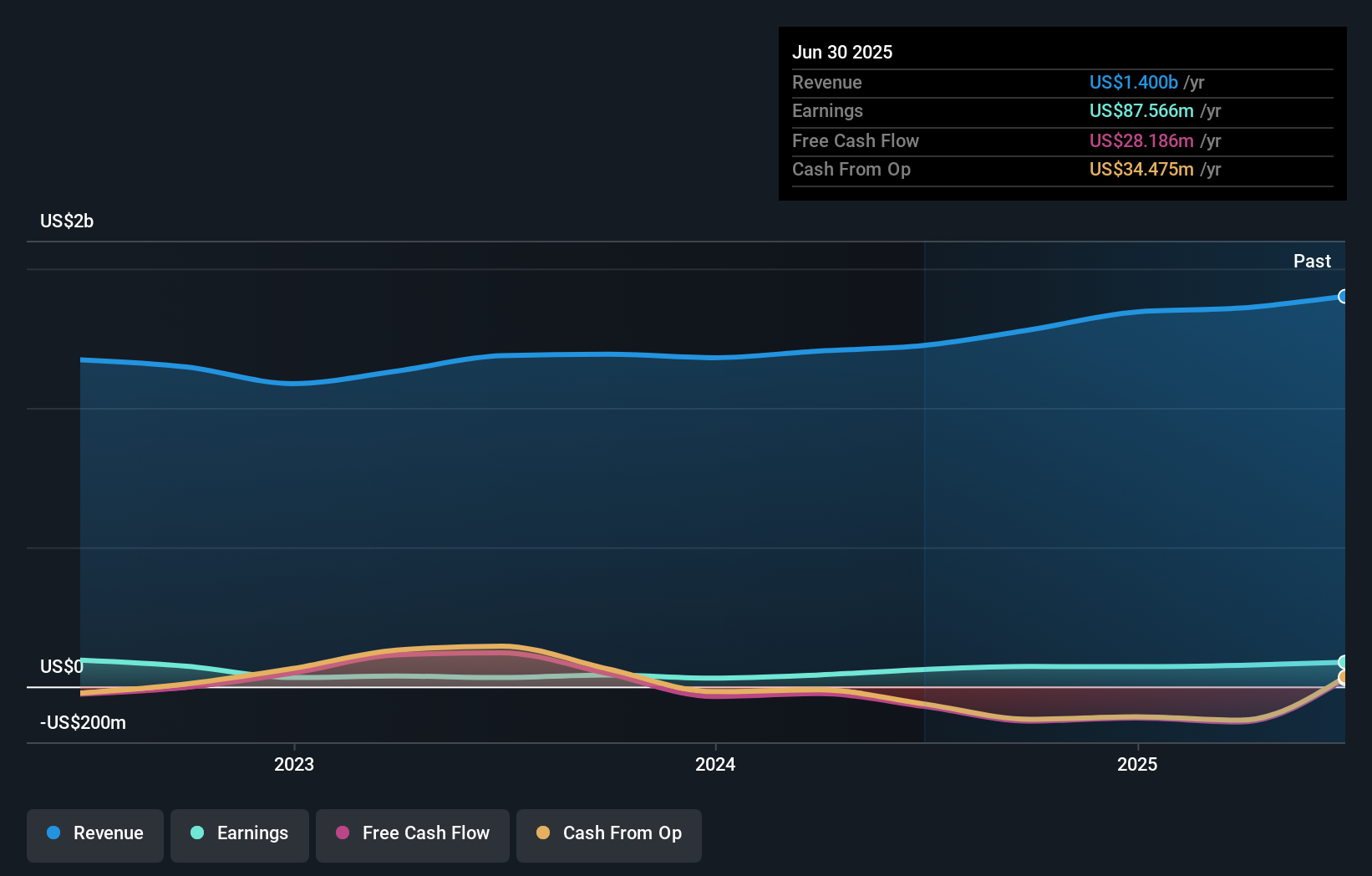Despite recent sales, Oppenheimer Holdings Inc. (NYSE:OPY) insiders still control 44% of the company
Key Insights
- Oppenheimer Holdings' significant insider ownership suggests inherent interests in company's expansion
- 51% of the business is held by the top 4 shareholders
- Insiders have been selling lately
Every investor in Oppenheimer Holdings Inc. (NYSE:OPY) should be aware of the most powerful shareholder groups. The group holding the most number of shares in the company, around 44% to be precise, is individual insiders. That is, the group stands to benefit the most if the stock rises (or lose the most if there is a downturn).
Insiders are at the top of the company's shareholdings despite selling some shares recently. As a result, they were also the biggest winners as market cap hit US$806m last week.
In the chart below, we zoom in on the different ownership groups of Oppenheimer Holdings.
View our latest analysis for Oppenheimer Holdings

What Does The Institutional Ownership Tell Us About Oppenheimer Holdings?
Many institutions measure their performance against an index that approximates the local market. So they usually pay more attention to companies that are included in major indices.
We can see that Oppenheimer Holdings does have institutional investors; and they hold a good portion of the company's stock. This implies the analysts working for those institutions have looked at the stock and they like it. But just like anyone else, they could be wrong. When multiple institutions own a stock, there's always a risk that they are in a 'crowded trade'. When such a trade goes wrong, multiple parties may compete to sell stock fast. This risk is higher in a company without a history of growth. You can see Oppenheimer Holdings' historic earnings and revenue below, but keep in mind there's always more to the story.

Hedge funds don't have many shares in Oppenheimer Holdings. Because actions speak louder than words, we consider it a good sign when insiders own a significant stake in a company. In Oppenheimer Holdings' case, its Top Key Executive, Albert Lowenthal, is the largest shareholder, holding 33% of shares outstanding. Meanwhile, the second and third largest shareholders, hold 8.5% and 4.8%, of the shares outstanding, respectively.
Our research also brought to light the fact that roughly 51% of the company is controlled by the top 4 shareholders suggesting that these owners wield significant influence on the business.
While it makes sense to study institutional ownership data for a company, it also makes sense to study analyst sentiments to know which way the wind is blowing. Our information suggests that there isn't any analyst coverage of the stock, so it is probably little known.
Insider Ownership Of Oppenheimer Holdings
The definition of an insider can differ slightly between different countries, but members of the board of directors always count. Company management run the business, but the CEO will answer to the board, even if he or she is a member of it.
I generally consider insider ownership to be a good thing. However, on some occasions it makes it more difficult for other shareholders to hold the board accountable for decisions.
It seems insiders own a significant proportion of Oppenheimer Holdings Inc.. Insiders have a US$352m stake in this US$806m business. It is great to see insiders so invested in the business. It might be worth checking if those insiders have been buying recently.
General Public Ownership
With a 18% ownership, the general public, mostly comprising of individual investors, have some degree of sway over Oppenheimer Holdings. This size of ownership, while considerable, may not be enough to change company policy if the decision is not in sync with other large shareholders.
Next Steps:
While it is well worth considering the different groups that own a company, there are other factors that are even more important. Consider for instance, the ever-present spectre of investment risk. We've identified 2 warning signs with Oppenheimer Holdings (at least 1 which can't be ignored) , and understanding them should be part of your investment process.
Of course this may not be the best stock to buy. Therefore, you may wish to see our free collection of interesting prospects boasting favorable financials.
NB: Figures in this article are calculated using data from the last twelve months, which refer to the 12-month period ending on the last date of the month the financial statement is dated. This may not be consistent with full year annual report figures.
Have feedback on this article? Concerned about the content? Get in touch with us directly. Alternatively, email editorial-team (at) simplywallst.com.
This article by Simply Wall St is general in nature. We provide commentary based on historical data and analyst forecasts only using an unbiased methodology and our articles are not intended to be financial advice. It does not constitute a recommendation to buy or sell any stock, and does not take account of your objectives, or your financial situation. We aim to bring you long-term focused analysis driven by fundamental data. Note that our analysis may not factor in the latest price-sensitive company announcements or qualitative material. Simply Wall St has no position in any stocks mentioned.
 Nasdaq
Nasdaq Wall Street Journal
Wall Street Journal